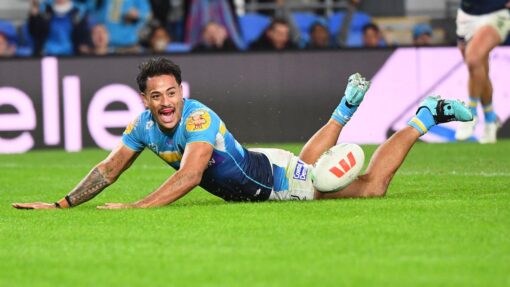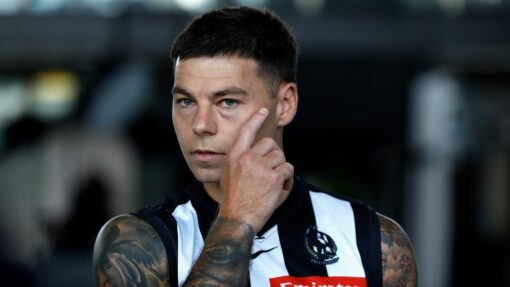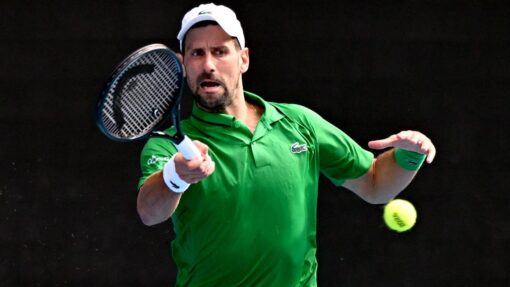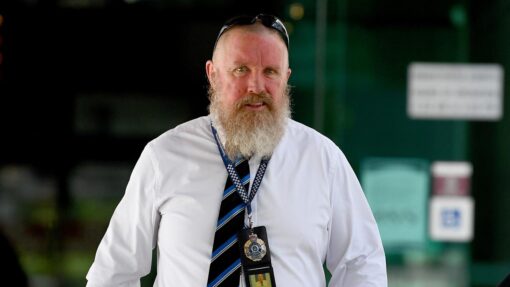Evolving Bellamy at top end of NRL coaching tree
Scott Bailey |
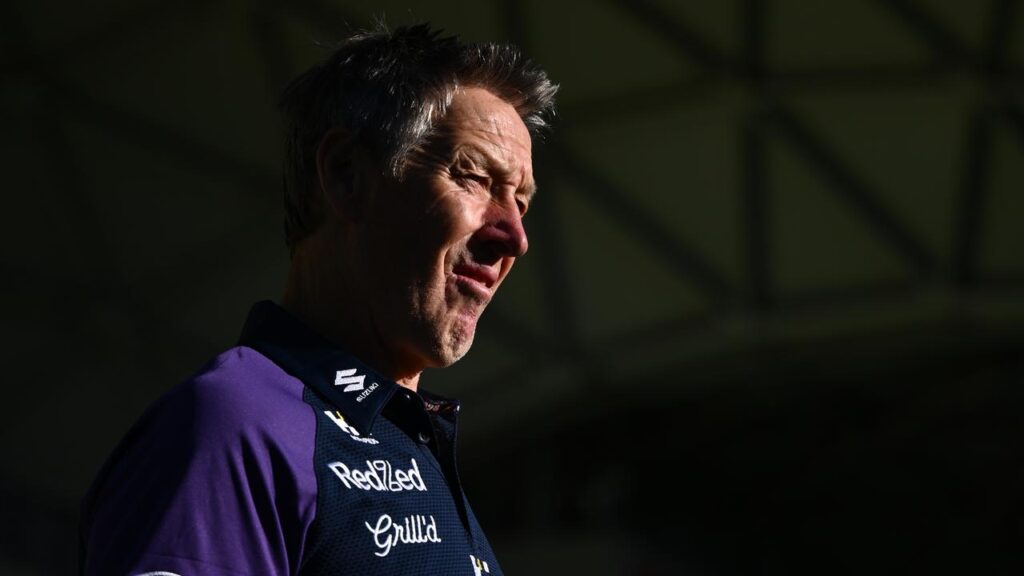
The first time Craig Bellamy took Melbourne to an NRL grand final in 2006, the master coach had one clear directive for his Storm players.
“You’ve really got to enjoy this and not take it for granted,” players recall Bellamy’s main message being in the lead-up to that clash against Brisbane.
“Because you never know when it might happen again.”
Nineteen years later, it is now clear how frequently grand finals come around for Melbourne during the Bellamy era: very often.
Bellamy will on Sunday lead the Storm into his 11th grand final as coach, overtaking Wayne Bennett for the most of all time.

“It’s really incredible,” Melbourne’s immortal-in-waiting Cameron Smith said.
“He’s been head coach of the Melbourne Storm for 23 seasons, it’s his 11th grand final. It’s almost a 50 per cent rate.
“When you think about that, there are a lot of coaches who would love a 50 per cent win rate, let alone making a grand final.”
Told this week he now stood above all coaches for grand-final appearances, Bellamy simply responded: “I would have liked to have won a few more.”

The fact Bellamy takes teams to deciders more often than any other coach in history hasn’t been missed by his players.
“It’s just the expectation that Craig’s set from day one to now,” Storm captain Harry Grant said.
“It’s never wavered. He’s always wanted this team, this organisation to be successful, and he’s worked extremely hard to get that.
“He’s definitely evolved, the game’s evolved, and he’s sort of gone with it too.”
With his 66th birthday on Friday, Bellamy’s evolution with the game is perhaps the most important element of the Melbourne coach’s success.

To see it, you need only look at the type of football Melbourne play now, compared with Bellamy’s early days at the club.
“You talk about Cameron Smith, Billy Slater and Cooper Cronk. They just played structure so well,” said Ryan Hoffman, himself a great of that era.
“That’s where the game was, you could break a team down by getting to certain points and breaking them down with structure.”
That is entirely different to the way the Storm play now, with Ryan Papenhuyzen, Cameron Munster and Jahrome Hughes in the key creative positions.
“They’re all fullbacks,” Hoffman continued.
“He doesn’t want them to play like traditional five-eighths. He wants a running game, and Harry Grant is so good at playing over the advantage line.
“It’s understanding your players’ strengths, and realising when you try to make someone something that he’s not, it’s not going to work.”

Perhaps most impressive is the fact that while Bellamy managed that transition, the Storm never missed a beat.
In the past 11 seasons, Melbourne have played 10 preliminary finals.
And most notably they have remained frontrunners alongside Penrith since Smith became the last of the original “big three” to retire at the end of 2020.
“We played a very controlled game, but you look at the Storm now and they play a lot more expansive and ad-lib,” Smith said.
“He’s more happy to let the players go out there and express themselves.
“If there are offloads (throw them).
“If there is a chance to kick early, like we saw with Munster the other night with Ryan Papenhuyzen (they take it).”
Bellamy has relaxed off the field too for the next generation, with Hoffman and Smith agreeing he has somewhat reinvented himself.

“His whole coaching philosophy has changed,” said Hoffman, who played in five grand finals under Bellamy before joining his staff.
“He talks to players differently now than how we spoke to us 20 years ago. He has understood what it takes to get these players to listen to your message.
“That’s what coaching is. As long as you keep the message the same, how you do it doesn’t matter. You’ve just got to get the players to resonate with it.”
Where once Bellamy’s links with the Storm’s old guard was considered one of the closest in the sport, his bonds with the likes of Munster are now as unbreakable.
And the master coach’s aura has only grown stronger each year.
“He doesn’t have to do much to get respect,” Melbourne prop Stefano Utoikamanu said.
“Once you’re in a room with him, you feel it. A lot of the Origin boys were saying it, that he just has that aura about him that you just want to play with him.
“He is probably one of the best coaches of all time.”

Where Bellamy does rank among the all-time coaching greats is a matter of debate, but there is no doubt he belongs in the same category as Bennett and Jack Gibson.
A win on Sunday would be Bellamy’s sixth in a grand final, putting him one clear of Gibson and one behind Bennett for coaches after World War II.
But for Hoffman, there is no debate.
“I’ll be hard-pressed to find another person who would say he’s not the greatest coach of all time,” he said.
“Let’s not forget too that the game has changed so much from what it was 20 years ago, or 10 years ago.
“But that hasn’t affected it. They’ve changed rules, they’ve changed interpretations of rules, but everything just still remains the same with his results.”

And as far as he is concerned, the proof could well come after Bellamy does eventually exit the coach’s box for the last time at AAMI Park.
“Craig’s legacy is going to be that I don’t think you’re going to see a drop-off from the Storm when he eventually stops coaching,” Hoffman said.
“His mentality is just so ingrained in the place.”
AAP